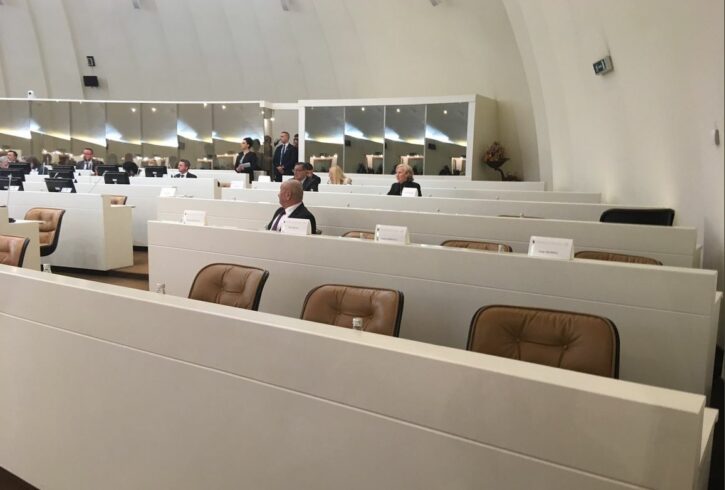
An urgent session of Bosnia’s lower chamber where MP’s were to discuss a government report on the influx of migrants and refugees in the country was cancelled after no representatives from Bosnia’s Serb-majority part showed up in protest because the government has not been formed since the 2018 General Election.
MP's from Republika Srpska (RS), the Serb-majority semi-autonomous entity within the country, announced earlier they would not attend the session because the process of forming the government – in Bosnia called the Council of Ministers – is being blocked and said they will not allow anyone to set conditions when it comes to implementing the will of the voters.
Bosnia lacks a new Council of Ministers mostly because the Bosniak member of the tripartite Presidency said he refuses to greenlight the proposed prime minister (Chairman) because the candidate is opposed to the country's path towards NATO membership.
Bosnia has previously pursued NATO membership but in recent years Bosnian Serb politicians have changed their mind. The next candidate for the Chairman of the Council of Minsiters comes from Dodik’s party which vigorously rejects membership in the alliance.
According to the agenda, the MPs should have been discussing a report by the Council of Ministers from the previous mandate – which is still in power until a new one is formed – on Bosnia’s capacities regarding taking care, controlling and managing the mass influx of migrants into the country.
The report puts special emphasis on the situation in the northwestern Una-Sana Canton, the area most affected by the migrant crisis.
MP’s were also supposed to discuss a memo from the advisory board of the State House of Representatives about reasons for why the country did not appoint members of its delegation to the Parliamentary Assembly of the Council of Europe (PACE) and possible consequences that may arise due to it.
According to the Prime Minister of the Una-Sana Canton, Mustafa Ruznic, local authorities there have set up four temporary reception centres to prepare for a new wave of migrants.
Suhret Fazlic, the mayor of Bihac, announced the closure of reception centres in his city, as well as some other radical measures.
Fazlic said that Bihac, as a city of about 60,000 residents, accommodates several thousand migrants and bears the greatest part of the burden of the migrant crisis without having adequate capacities to accommodate the migrants.







